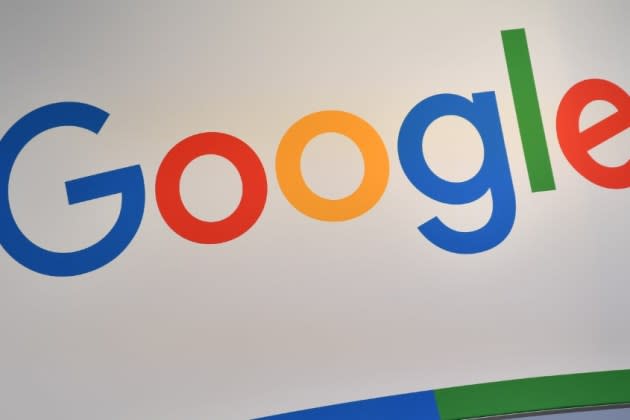Google to Pay $700 Million to Settle Antitrust Lawsuit Over App Store

Google agreed to pay $700 million and will make certain changes to the Google Play app store for Android devices under the terms of a settlement with all 50 U.S. states, which had alleged in a lawsuit the app store operated as an illegal monopoly.
As part of the settlement, Google will allow app and game developers to implement an alternative billing option alongside Google Play’s billing system for U.S. users, who can then choose which option to use when making in-app purchases. The internet giant has been “piloting” user choice billing in the U.S. for over a year and “will now expand this option further,” Wilson White, Google’s VP of government affairs and public policy, wrote in a blog post.
More from Variety
In March 2022, Google announced a multiyear agreement with Spotify that gives users who have downloaded the Spotify Android app from the Google Play store the choice to pay with either Spotify’s payment system or with Google Play Billing. Spotify does not pay any commission to Google if users opt to pay directly to Spotify, while other app developers are charged a 4% fee under the direct-payment option. The standard Google Play cut is 30% of transactions (as is the case with Apple’s App Store).
Google reached the settlement with the state attorneys general in September, resolving litigation that the AGs brought in 2021, and the terms were disclosed in a filing Monday (available at this link). The states’ lawsuit alleged Google Play was an illegal monopoly that stifled competition from other app distributors on Android devices. Specifically, the states claimed that Google signed anticompetitive contracts to prevent other app stores from being preloaded on Android devices, paid off key app developers who might have launched rival app stores, created technological barriers to deter consumers from directly downloading apps to their devices and imposed monopoly prices on in-app purchases.
Of the $700 million settlement amount, Google will pay $630 million to a fund to compensate consumers who may have overpaid for apps or in-app purchases via Google Play. An estimated 102 million people in the U.S., the District of Columbia, Puerto Rico and the U.S. Virgin Islands who made purchases on the Google Play store between August 2016 and September 2023 are eligible to receive compensation under the agreement. The remaining $70 million will go to the states.
“This settlement builds on Android’s choice and flexibility, maintains strong security protections, and retains Google’s ability to compete with other OS makers and invest in the Android ecosystem for users and developers,” Google’s White wrote in the blog post. “We’re pleased to resolve our case with the states and move forward on a settlement.”
News of the settlement terms with the state AGs comes after a federal jury issued a verdict last week in a lawsuit brought by “Fortnite” maker Epic Games that Google has monopoly power in Android app distribution and in-app billing markets. In addition, the jury found that Google illegally tied its Google Play app store and its Google Play Billing payment services. A judge is scheduled to determine the remedies in the case in January 2024.
In the blog post, White wrote that “we were disappointed that the verdict did not recognize the choice and competition that our platforms enable. While we are challenging that verdict and our case with Epic is far from over, we remain committed to continually improving Android and Google Play.”
The settlement with the state AGs requires Google to let developers allow customers to pay through in-app billing systems other than Google Play billing for at least five years. Google also much permit developers to direct consumers toward alternative, non-Google billing systems by advertising cheaper prices within their apps themselves for at least five years.
In addition, under the agreement, Google is required to: not enter into contracts that require the Play store to the be the exclusive, preloaded app store on a device or home screen for at least five years; allow the installation of third-party apps on Android phones from outside the Google Play store for at least seven years (something Google already allows); revise and reduce the warnings that appear on an Android device if a user attempts to download a third-party app from outside the Google Play Store for at least five years; and maintain Android system support for third-party app stores, including allowing automatic updates, for four years.
Epic Games VP of public policy Corie Wright, commenting on the state AGs’ settlement with Google, said the agreement provided “a one-time payout with no true relief for consumers or developers. After originally seeking $10.5 billion in antitrust damages identified as Google’s unjustly collected fees, the States Attorneys General settled for a $700 million payout.”
“Consumers will continue to overpay for digital goods as a result of Google’s imposition of supracompetitive 30% fees for Google Play Billing or 26% junk fees on top of payments Google isn’t involved in processing,” Epic’s Wright said. Regarding Epic v. Google, Wright added, “In the next phase of the case, Epic will seek meaningful remedies to truly open up the Android ecosystem so consumers and developers will genuinely benefit from the competition that U.S. antitrust laws were designed to promote.”
Best of Variety
Sign up for Variety’s Newsletter. For the latest news, follow us on Facebook, Twitter, and Instagram.
